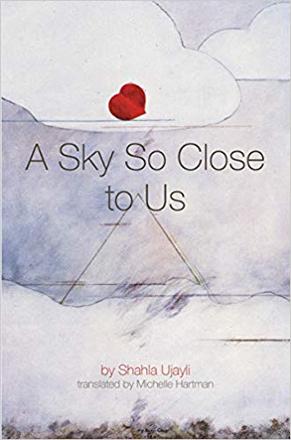You are here
Are old-fashioned values still viable?
By Sally Bland - Sep 11,2016 - Last updated at Sep 11,2016
Major Pettigrew’s Last Stand
Helen Simonson
New York: Random House, 2011
Pp. 368
Just when Major Ernest Pettigrew begins to experience disconcerting symptoms of ageing, several chance encounters with the local shopkeeper, Mrs Ali, rekindle the joy of living that he fears is waning. Having both lost beloved spouses in recent years, the two are drawn together by a mutual love of classical literature, appreciation of nature and sensible approach to life. But, as their friendship develops, it raises eyebrows in their Sussex village, Edgecombe St. Mary, revealing residual prejudice despite the village elite’s claim that it is “a utopia of multicultural understanding”. (p. 6)
Roger, the Major’s twenty-something son, is also shocked by the ethnicity of his father’s new companion, as are many others who seem very modern in consumerist terms, but have obviously not come to terms with the legacy of British colonialism.
“Major Pettigrew’s Last Stand” is first and foremost the story of the gentle, old-fashioned romance between two middle-aged people, but it is also the story of Britain in transition and an exploration of cultural differences. Interestingly, these differences are not only between the “real” English and Mrs Ali’s Indian Muslim/Pakistani-origin family, but more so within the two respective communities. Sometimes, they are synonymous with the generation gap. At other times, they are the friction between a simple, locally based way of life and the frenzied, globalised world of branding, electronic communication, cosmopolitan tastes, fast travel and fast money.
Ironically, the quintessentially English Major was born in Lahore, his father having been an officer in the colonial army, while Mrs Ali was born in Cambridge, her father having immigrated to Britain after India’s partition. Mrs Ali, whose first name is Jasmina, remembers being “raised in a library of a thousand books” by a father who dreamed that the United Nations would grow into a world government and that Britain would finally accept the immigrants from its former colonies — an issue that predominates in the novel. (p. 62)
Her husband was also open-minded, but after his death, her in-laws try to restrict her independence: She should join them in North England to care for their children and elderly, while her nephew, their son, whom they have retrained in conservatism, should take over the shop. The Major is outraged at these plans, but hesitates to speak out against family obligations since he is suffering from the neglect of his only son, who is so absorbed with his career in London’s financial sector that he often seems to be “the strange adult who existed mostly at the end of the telephone”. (p. 30)
With the aid of the Major’s dry wit, the book satirises most of the English characters for their hypocrisy, hurtful prejudices, petty preoccupations and, in some cases, crass materialism and wilful ignorance. Nor are Roger’s American girlfriend and business contacts spared.
Cultural differences are revealed to be a clash of values as reflected in the novel’s various subthemes, such as the attempt of a bankrupt lord to retain his property and privilege by partnering with a US corporation to parcel out the village land for a luxury housing estate. The Major is not one to join public protests, but the prospect of pseudo-manor houses abutting his back garden makes him sick at heart — and what would happen to Jasmina’s shop in a revamped Edgecombe St. Mary?
The brilliance of Helen Simonson’s writing is that she doesn’t describe these cultural differences directly. Her characters act them out, revealing their sentiments in zesty, realistic dialogue. What she does describe is rural beauty from the gracious, 17th century, stone houses of the village, their luxuriant gardens crisscrossed by rabbits, to misty mornings, wide-open fields and rocky seashores.
Her pen is so painterly that one easily imagines the book as a film, while eagerly turning the pages to see if the Major’s and Jasmina’s love, and the village’s tranquillity, can survive the new developments. Another way to pose this question is to ask whether their shared, old-fashioned values — a strong sense of duty, honesty, patriotism, family pride and the importance of manners and education — are still viable in the post-modern world.
Simonson was born in Britain but has lived in the US for 20 years, qualifying her to write a truly English novel, but with the objectivity gained at a distance. In this, her first novel, she creates a set of memorable characters in a story that is by turn heart-warming, funny and slightly provocative. Though grounded in often harsh realities, her whimsical scenes and writing style make this book a great pleasure to read.
Related Articles
Little Fires EverywhereCeleste NgUS: Penguin Random House, 2017Pp.
A Sky So Close to UsShahla UjayliTranslated by Michelle HartmanUS: Interlink, 2019, 303 pp. This is a novel that was shortlisted for th



















